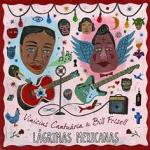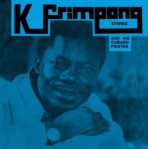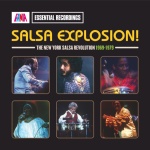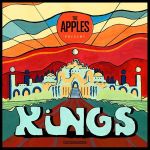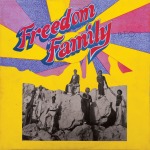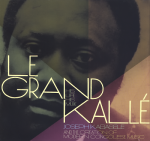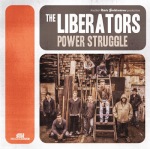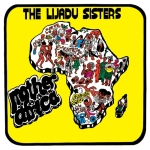. issue XXIV : iii .
. artist : vinicius cantuaria & bill frisell .
. album : lagrimas mexicanas .
. year : 2011 .
. label : eone music .
. grade : b minus .
Vinicius Cantuaria is a New York City-based Brazilian singer-songwriter-guitarist-percussionist whose unique music straddles the worlds of MPB (Brazilian popular music), jazz and the downtown New York scene. Here he’s in a collaborative duo with Bill Frisell, one of the great jazz musicians of the current era and a man with an equally wide range of interests – the two previously worked together in Frisell’s excellent band The Intercontinentals. Neither musician occupies new ground here – rather they meet at the midpoint of their interests on some tuneful material that emphasizes Cantuaria’s expressive singing and Frisell’s beautiful guitar melodies and loops. Not a breakthrough recording on the order of Frisell’s Have A Little Faith or Nashville, but a high-quality outing that’s pleasing on the surface and reveals additional depth on further listening, like the best Brazilian pop music.

